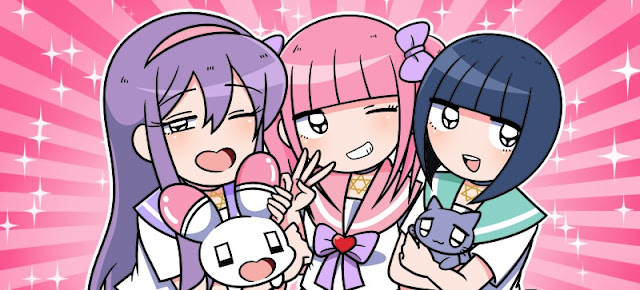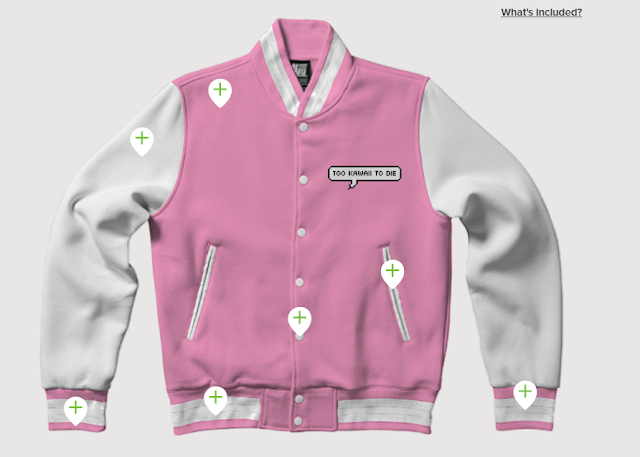Final Project research - Jpop & Kpop culture
J-Pop is the shortened term for ‘Japanese Pop’, a music style that typically is light hearted and upbeat in theme and is typically preformed by an all girl or all boy group. This style of music has become widely popular in western countries outside Asia, meaning the younger demographic here is also exposed to it very easy over platforms such as youtube.
J-Pop star Kyrau Pamyu Pamyu was my first introduction to the J-Pop phenomenon, her hugely unique Harajuku style and upbeat music got me listening to her multiple times a day. She is an individual J-Pop star and is not part of a huge group, as such she has accumulated a lot of opportunities for herself in both advertising and in person events.
I loved her style, I thought the bright colours and clear confidence in how she looked was inspirational, it really pushed my love for kawaii fashion into overdrive. I went ahead and began buying clothes from Japanese retailers and styled my hair to be more cute and anime like.
Overall the outer appearance of J-Pop is extremely appealing and shows itself as an overall positive influence and outlet for silenced youth in Asia and quirky individuals across sea. However, there is a darker side to the very colourful and encouraging world of J-Pop performers.
Firstly with the vast majority of J-Pop Idols, there is an expectation that the idol/idols are able to sing, dance, voice act, host (tv presenting as one example), and model. This is because their job as an idol isn’t just to sing but is to encourage and show an idealistic lifestyle. You will find there are camps and agencies that specialise in taking young children and grooming them over many years to potentially become fully fledged idols.
This grooming can involve:
· Surgeries and procedures to make the participants more flawless and attractive (chemical peels, restrictive diets, cosmetic surgery)
· Disallowing any relationship or undesirable relations outside of approved interactions (no boyfriends/girlfriends as it makes you less desirable to fans)
· Having a specified list of topics you can and cannot discuss with the public (mental health, some surgeries and procedures)
These practices are also still enforced if the hopeful idol successfully makes it into the industry. With one of the biggest rules maintained being no boyfriends/girlfriends and no sexual relations, this is because they see it as detrimental to the stars popularity. This form of managing essentially reduces these idols identities malleable to whichever demographic their agency/manager wants them to appeal too.
There have been some very well known cases of stars discovered to have secret relationships or even found to be pregnant that have thus been detrimental to their career.
These camps/agencies have been compared to an American conspiracy/practice during MK Ultra known as the ‘Monarch control’. This specific form of mind control is eerily similar to the restrictive grooming of young children for J-Pop.
According to this theory/practice you have the subject known as a ‘Kitten’ and the manager style figure known as ‘The handler’. The handler grooms the kitten into a certain image that’s most digestible and popular to a large (typically young female) audience. This image will typically be more innocent and seen as overall family friendly. Eventually when the Kitten gets too old to maintain the more youthful and pure persona, they will undergo a hiatus and return entirely different. They will have a far more adult appearance, sexualise themselves more in their music and for any modelling they may do. This change encourages previous younger fans into emulating this new change and entices older demographics into buying into their ‘brand’ . Essentially keeping the kitten relevant and starting the cycle over for new impressionable youth. Stated examples of this potential theory in practice have been western stars like Ariana Grande and Miley Cyrus, both of them started as very much tween pop stars, then slowly they became sexualised and more adult in media.
With these idols becoming popular across sea’s, the reach of their initial bright and bubbly appeal is underlined with a far less desirable lifestyle. Western media already has a very talked about issue with misogyny and the sexualisation of the artists in mainstream music. With J-Pop now joining the ranks, it feels on the surface like a breath of fresh air, however, knowing the extreme dedication and sacrifices these idols make, perhaps they are still not the role models we should be looking too.
https://culturacolectiva.com/music/dark-side-of-the-japanese-idol-industry/



Comments
Post a Comment